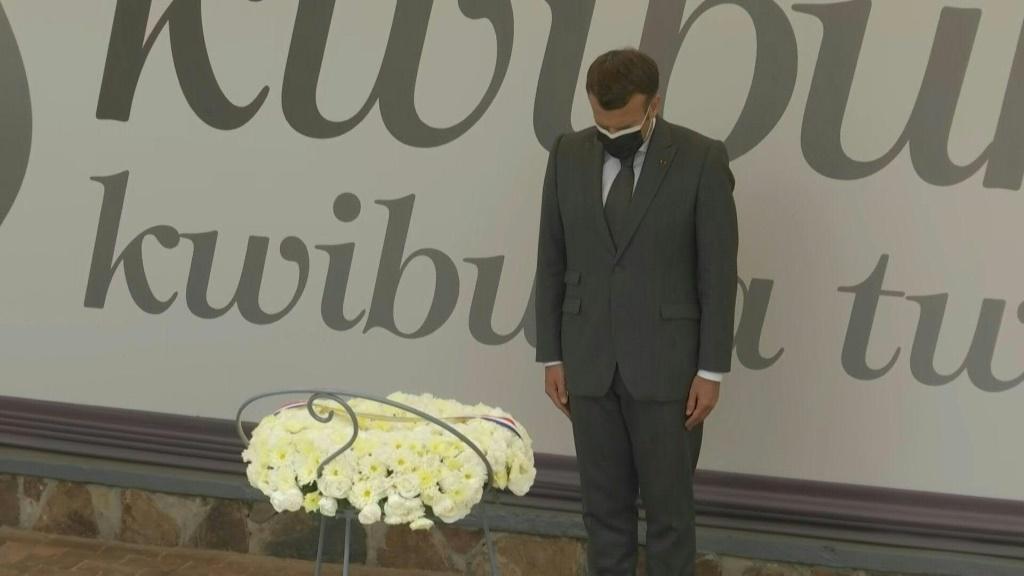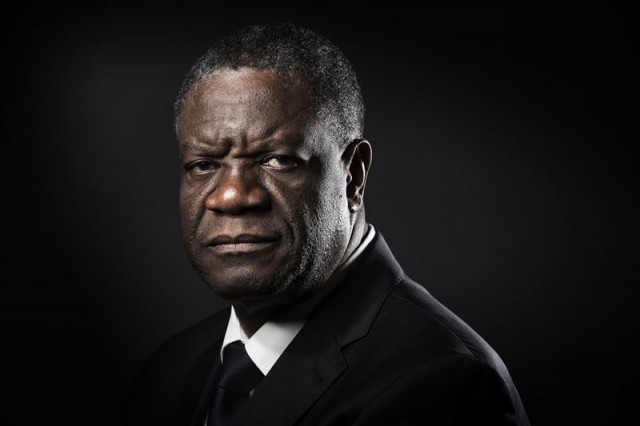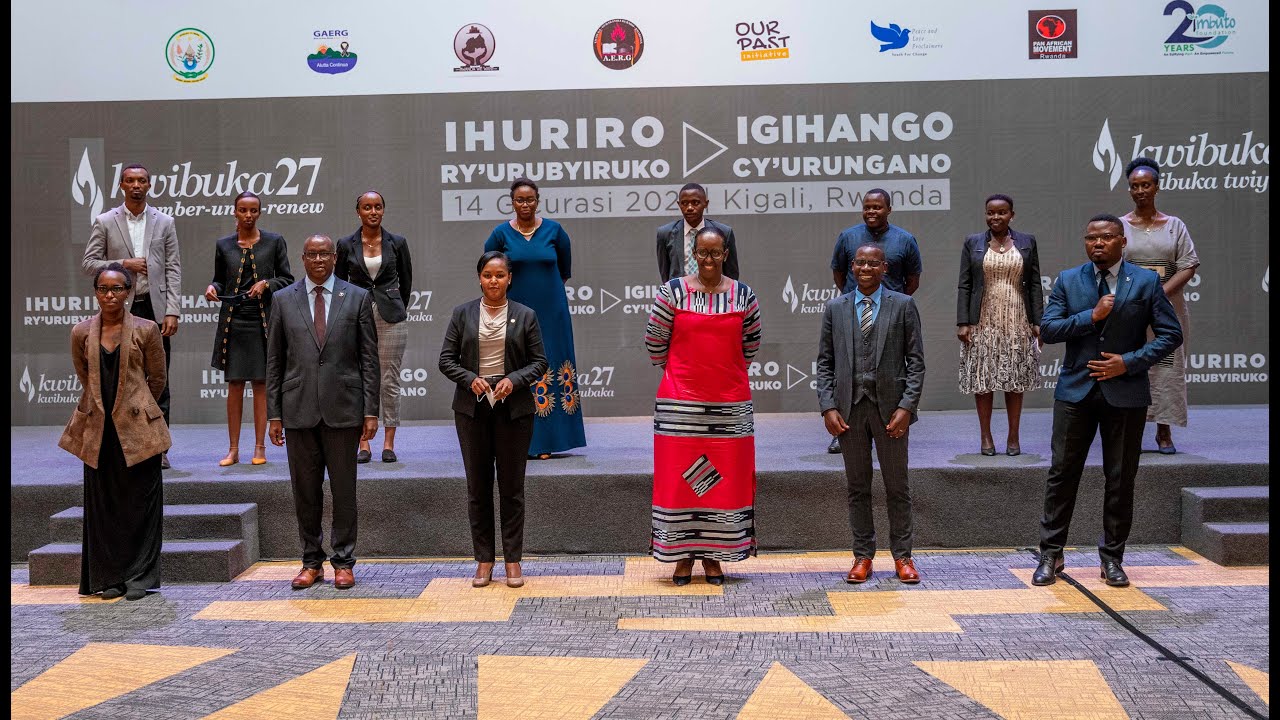Regional
Macron visits Rwanda, pays tribute to Genocide victims, seeks survivors' forgiveness

President Emmanuel Macron, on Thursday, May 27, visited the Kigali Genocide Memorial, honoured victims of the 1994 genocide against the Tutsi and publicly sought the forgiveness of survivors for his country's role, history and political responsibility in the massacres 27 years ago.
The President of France, Emmanuel
Macron, on Thursday, May 27, visited a Genocide Memorial in the Rwandan
capital, Kigali, laid a wreath and honoured victims of the 1994 genocide
against the Tutsi.
In a speech at the Memorial, on
Gisozi hill, where more than 250,000 victims of the genocide are interred,
Macron fell short of making a direct apology - as many Rwandans expected - but
publicly sought the forgiveness of survivors for his country's role, history
and political responsibility in the massacres 27 years ago.
When Macron's predecessor, Nicolas
Sarkozy, visited Rwanda in 2010, he admitted France had committed an “error of
judgment” and “serious mistakes” during the 1994 genocide but he did not
apologise. Nor did Sarkozy ask for forgiveness.
The killers who haunted Rwanda's
swamps, hills, and churches during the genocide, Macron said, did not have the
face of France. His country was not an accomplice, he said. At this point,
Rwandans listening to his live streamed speech held their breath. For 27 years,
they have been accustomed to the Élysée's unending denial when it comes to the
massacres of more than one million Tutsi in 1994.
But France has a role, he said, a
historical and political responsibility in Rwanda. "And it has a duty: to
face history and recognize the amount of suffering it has inflicted on the
Rwandan people by allowing silence to prevail over the examination of the truth
for too long," Macron said.
He went on, among other things, about
how France did not understand that, by wanting to prevent a regional conflict
or a civil war, it was, in fact, standing alongside a genocidal regime. By
ignoring the warnings of the most lucid observers, he said, France bore an
overwhelming responsibility in a spiral that ended in the worst, even as it sought
to avoid it.
He observed that when the killers
began what they hatefully called "work" - massacres of the Tutsi - in
April 1994, the international community took nearly three months, three
interminable months, before taking action.
Macron promised Rwanda, and genocide survivors
that efforts in France geared at bringing out the truth on what transpired in
1994 will continue. He pledged to ensure that no single person suspected of
crimes of genocide escapes justice.
Macron's visit comes after the
publication of two successive reports on the role of France in the 1994
genocide against the Tutsi. First, was the Duclert Commission's report,
commissioned by the French government, published in March. It, among others,
concluded that France bears heavy and overwhelming responsibilities over the
1994 Genocide but - as has been characteristic of France's denial - made no
mention of any evidence of French complicity.
The other one was the report of the Muse investigation submitted to the Government
of Rwanda on April 19, detailing, among others, France's prior knowledge of
plans to exterminate the Tutsi and complicity despite the French government
avoiding the truth and failing to fully acknowledge its role and responsibility
in the genocide.
"Recognizing this past, our responsibility, is an unreciprocated gesture," Macron said, suggesting that there is a debt to the victims of the genocide after nearly three decades of silence. He added: "A gift to the living ones whose pain we can, if they accept, still ease. This journey of recognition, through our debts, our donations, offers us hope to come out of this night and walk together again. On this path, only those who have been through the night can perhaps forgive, give us the gift of forgiving us."
There have been mixed reactions over this. Egide Nkuranga, the president of Ibuka, the main genocide survivors’ association, was disappointed that Macron did not "present a clear apology on behalf of the French state" or "ask for forgiveness". But Nkuranga acknowledged that the French leader made an important step when admitting that France has a role and a responsibility.
Many other survivors welcomed
Macron's speech. But they are going to patiently wait to see whether the French
establishment will walk the talk by especially reigning in dozens of indicted
genocide fugitives on French soil.
It remains to be seen how France will
deal with top suspected masterminds of the genocide including Agathe Kanziga, wife of former President of the
genocidal regime Juvenal Habyarimana, or unrepentant diehards in France's old
guard such as former French prime minister Edouard Balladur who rejected the
findings of the Duclert Commission and also deny the genocide committed against
the Tutsi. A degree of uncertainty especially reigns since Macron will step
down mid next year when his term ends.
Kagame: Speaking the truth is risky
Rwandan President Paul Kagame hailed
Macron’s speech, saying the latter's words were something more valuable than an
apology. "The President (Macron) has just made an important statement at
the Kigali Genocide Memorial. This was a powerful speech, with special meaning
for what is taking place now, and which will resonate well beyond Rwanda. His
words were something more valuable than an apology: they were the truth,”
Kagame said later as the two addressed a joint press conference in Kigali.
"Speaking the truth is risky.
But you do it because it is right, even when it costs you something, even when
it is unpopular. Despite some loud noises and voices, President Macron took
this step." According to Kagame, politically and morally, Macron's move
was an act of tremendous courage.
The truth heals, Kagame said, noting that this is the principle upon which Rwanda’s entire project of national unity and reconciliation is based. Kagame added: "Our conviction, from the beginning, was that the process of reckoning with the role of France had to follow the same logic. And in any case, we knew it could not be harder than reconciling with ourselves.
"No grain of truth has been
sacrificed. But the weight of responsibility has been put back where it
belongs: with those who made the decisions. Whether or not there are trials,
justice is also rendered by the court of history. And the work of historical documentation
must continue, jointly."



